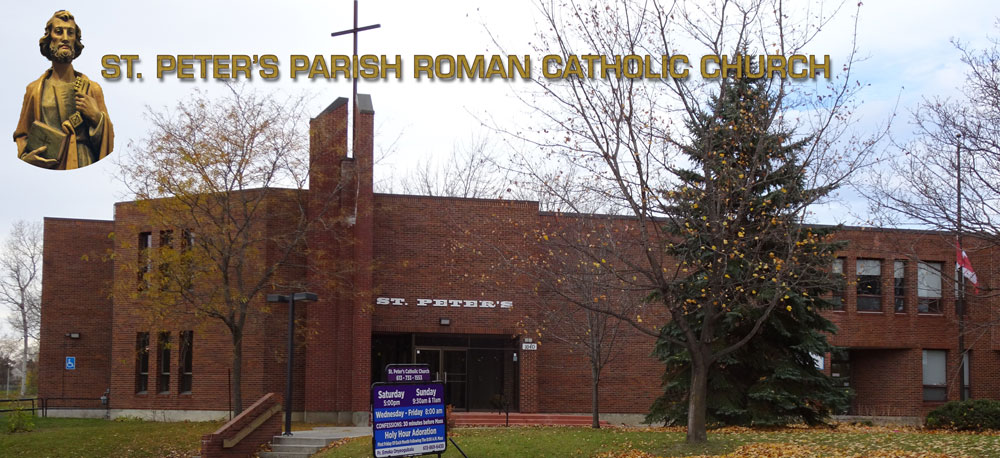Congratulations!
If you are reading this you are probably at a very important moment in your life: you are expecting a baby or have recently celebrated a birth.
And now your thoughts are turning to the Sacrament of Baptism —
Why do you want to have your child baptized?
There are many reasons why people come to the Church requesting baptism for their children. Those with little or no faith see baptism as a family tradition, performed only to satisfy grandparents or other relatives. Others see baptism in magical or superstitious terms, as a kind of spiritual insurance. For others, baptism is simply the thing to do and they can offer no further explanation. But people of faith see the deeper meaning of this sacrament. Baptism expresses all the faith and the hope that parents have for their newborn child, and affirms the love that God has for their son or daughter.
What is the Sacrament of Baptism?
The Sacrament of Baptism is the door to life and to the Kingdom of God which Jesus Christ offered all through His Church when He told His Apostles: Go, make disciples of all nations, and baptize them in the name of the Father, and of the Son, and of the Holy Spirit@ (see Gospel of Matthew 28:19).
Jesus said, no one can enter God‘s kingdom without being begotten of water and the Spirit (see Gospel of John 3:3-5). Christians have always understood these words to mean that baptism is necessary for salvation. It is the sign and the means of God’s love, which frees us from original sin and communicates to us a share in divine life.
What is Original Sin?
The first reaction you might have is, How can an innocent baby be guilty of sin? It’s not, of course. Original sin is not an action on your baby’s part, but the absence of a gift which he or she would have had if our first parents, Adam and Eve, had not sinned. Remember the story of our first parents in the Garden of Eden (see Book of Genesis 3:1-24)?
God had created Adam and Eve, and given them a supernatural life of grace, but they lost it when they placed their will in opposition to God’s. And as God had made them representative of the human race, the whole race also lost it – so that all human beings are born without the supernatural life God intended for them. This is what we call The Fall; and the sin that caused it, Original Sin. The result is that we are all born without the supernatural life. By dying on the Cross and rising from the dead, however, Jesus Christ undid the sin of our first parents, and regained for us the supernatural life. This is what we call the Redemption.We share in the redemption and the very life of Jesus by baptism. Considered in itself, then, baptism is the greatest gift a person can receive, and so must not be delayed.
Why baptize babies?
Some people object that we should not baptize infants because that is a restriction of their freedom. Shouldn’t we let them grow up and make their own choice of a religion when they are older? Parents are always making decisions in the best interests of their children without asking their permission: they feed, clothe, shelter and educate them without their permission. If they didn’t, society would consider them not responsible parents. The same is true in the area of faith. Parents have to do what is in the best interest of their children spiritually, nourishing them and educating them in the faith.
Other people object that baptism requires a person to be converted and make a profession of faith beforehand. Obviously, babies cannot do this. The practice of baptizing babies, however, rests on an immemorial tradition originating from the Apostles, and this cannot be ignored. Besides, baptism is never administered without faith: in the case of infants, it is the faith of the parents, the godparents, the families, and the whole Church.
Please note that children 6 years of age and older will be required to take instruction prior to baptism. Please call the parish office at (613) 733.1553
What about the faith of the parents?
Baptism celebrates our entry into the faith of the believing community, the Church. Therefore, assurances must be given that the child to be baptized will be given an authentic education in the faith and Christian life. The faith of the parents is paramount here, since it is into the parents’ faith that the child is being baptized. We no longer live in a Christian society; Christian values are often downplayed or contradicted. We cannot depend on others to supplement or replace the faith of parents. Parents whose faith is weak or nonexistent are in the awkward position of promising to hand on to their child what they themselves do not possess.
How can parents hand on the faith?
There are many ways that parents can hand on their faith to their children:
- by teaching them to pray and making the home a prayerful environment (e.g., teaching children to say morning and night prayers, grace before meals, praying together as a family, keeping the religious element of such celebrations as Christmas, Easter, Thanksgiving, etc.)
- by having religious symbols in the home (e.g., a Bible, A Crucifix, Holy Water, Blessed Candles, etc.)
- by sending children to Catholic schools.
- by bringing children to Mass regularly.
